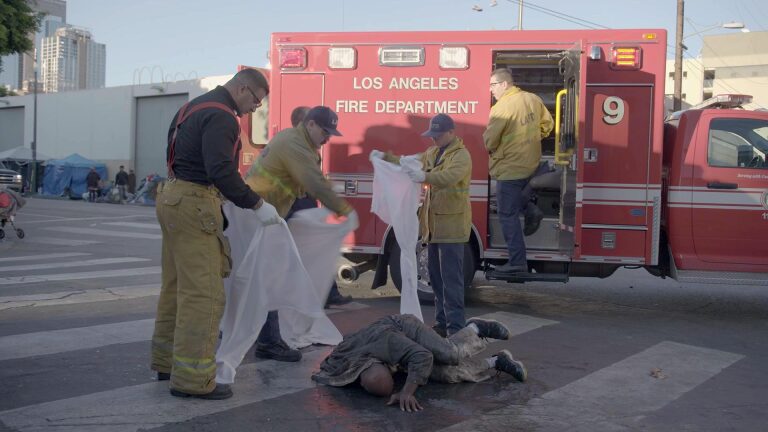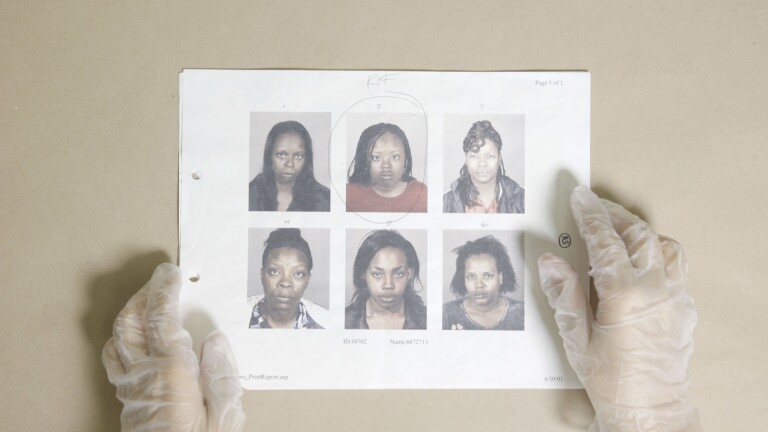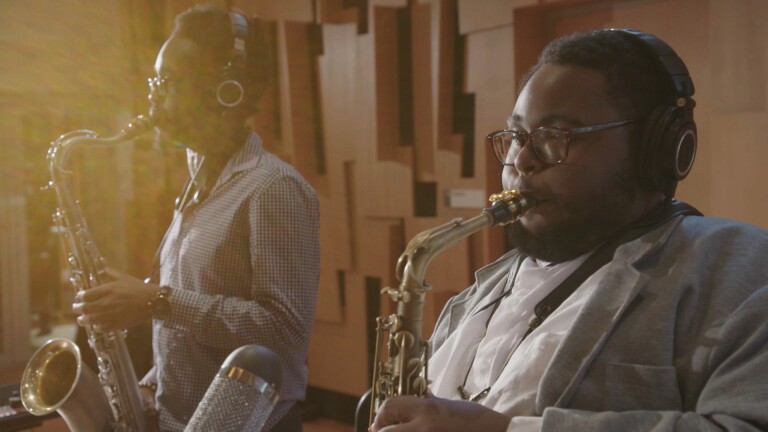
Postpartum Task Force Helping Mothers, Saving Lives
Probably everyone has heard of the "baby blues" -- a temporary condition for most mothers. But did you know suicide is the leading cause of death for pregnant women and new mothers in the first year after they've had a baby? About 10-15 percent of women who are pregnant or just gave birth have symptoms of anxiety and what's called postpartum or maternal depression. In low-income women or women of certain ethnic minorities, it's closer to 30-40 percent.
TRANSCRIPT:
Vince Gonzales/Reporter: Raul Martinez frequently visits this stretch of the Santa Monica Boardwalk.
Raul Martinez: Kelly and I used to sit and watch people go by. She loved the ocean, she loved the good view, she loved sunsets, and she taught me how to rollerblade right here. This spot has special significance for us as a couple. But I also imagined that she would want to sit and watch our daughter play.
Gonzales: It may seem odd to start a story about maternal depression with a man, but Raul now often comes to this spot alone, or with his young daughter Melina. Almost exactly three years ago his wife Kelly took her own life just months after Melina was born.
Martinez: She hurt herself very violently with a knife. She was not a violent person, not a violent person at all, wouldn't hurt a fly. It just hurts thinking of the despair, fear, maybe anger, who knows what other emotions she might have been going through?
Gonzales: That's a pain Melina, now three years old, also feels.
Martinez: We would get periods of time when she'd walk through the house looking for Mommy. And she'd say, "Mommy, Mommy," calling. And I just -- it was heartbreaking. And when she finally got it, when she finally understood, she sat there and just cried. And that broke my heart. One time I asked her, I said, "If your mommy was here what would you do with her right now?" And she said, "I just want to sit on the couch with her. I just want to play with her and show her my toys." It's so simple. That's all kids want. They just want to feel loved. And they want to share special time with their parents. And my daughter's never going to have that.
Gonzales: Kelly had an extreme case of postpartum depression, a condition Raul says they were not really warned about.
Martinez: I was like, "What can take a highly-educated, smart, confident woman, and turn her upside down until a point where she takes her own life?"
Gonzales: The family sought care for Kelly, but Raul says many doctors and healthcare providers were unfamiliar with maternal depression.
Martinez: The treatment is difficult to get, because unless you know, unless you are lucky enough, I guess, to be going to someone who has been trained or has experience dealing with postpartum depression, they may misdiagnose it, may not know who to refer you to.
Gonzales: Raul's an attorney, and Kelly was a nurse, and he was left wondering if a highly-educated couple with financial resources could not find the right doctors and treatments, then what were other women going through?
Martinez: I know women that, after my wife died, they contacted me on Facebook -- women from all aspects in my life, from elementary school, junior high school, college, law school, you know, old coworkers, that expressed sympathy because they had gone through the same thing, and they'd been too ashamed to tell anybody about it.
Blanca Hernandez/Mother: I never felt like this with none of my kids. I have six, and it's hard. My husband thought, "Ah, it'll go away fast." But it doesn't go away. And you don't even know why you have it. I feel like if it could go away easily, I would do it, because it's hard. I hate feeling sad, I hate feeling depressed.
Gonzales: Like Raul's wife, Blanca Hernandez considered suicide after her baby was born.
Hernandez: I already had a plan that I was going to hang myself, and I was going to call 911, so they could come and get my son, so he won't be alone.
Gonzales: Blanca was lucky. She revealed her suicidal thoughts to a doctor in a new pilot program created by the Los Angeles County Perinatal Mental Health Task Force and the USC-Eisner Family Medicine Center at California Hospital. Low-income and minority women -- like those served by the center's clinic -- suffer from higher rates of postpartum depression.
Caron Post/Executive Director, L.A. County Perinatal Mental Health Task Force: We know for poor women in L.A. and countrywide that one in four infants who live in poverty have a depressed mother. So the effects are just profound, and we need a task force in L.A. because we really don't have a system to really detect these cases of women who are depressed and to intervene in any systematic way.
Gonzales: Setting up that system is the purpose of the pilot program. Postpartum depression is not hard to detect with training and a little listening. It's also very treatable, but many doctors aren't trained to recognize it, and many women don't know care is available or just can't afford it. They have childcare issues and often don't have insurance or even money for gas or bus fare to get to a clinic.
So, task force members like social-work intern Margarita Alvarez, make house calls to about 50 percent of their patients.
Margarita Alvarez/Social Work Intern: I have had women that I meet with that have expressed wanting to hurt themselves.
Gonzales: Blanca is one of those women.
Alvarez: When you say you're getting anxiety attacks, what's going on?
Hernandez: I'm feeling fine and then all of a sudden, I feel my hands shaking, and I just feel like crying and screaming and frustrated all at the same time.
Onjelle Byron/Mother: All the emotions, all the anxiety, I feel it on the inside. But I always try to hide it.
Gonzales: Margarita also meets with moms like Onjelle Byron in the clinic. The stigma of depression, which many women face, held Onjelle back, too.
Byron: From your cultural background it's like, you know, "What are you doing? What are you getting therapy for?" So it's like, okay, maybe I might not say nothing. Ultimately, when I started to think about it, I was like, "I know something is not right in my body. I don't know what's going on in everybody else's minds, but I need someone to talk to, and I need some help before I really do something drastic."
Gonzales: In the task force's pilot program, she found a lot of people willing to listen. Each woman in the program has what's called a "New Family Care Team."
Post: The goal is really to wrap around services for a mother who is suffering from maternal depression. Again, she's not just handed a referral, but a whole team, a disciplinary team is there thinking about her and helping develop a treatment plan. So, we have psychiatrists, a psychologist, a social worker, social work intern, a medical doctor, a resident, an occupational therapist.
Gonzales: The teams, based in the clinic, sit down once a week to make sure each patient's treatment is on track.
L.A. is one of the only places in the country where this comprehensive team approach -- from family planning through conception and the first year of a baby's life -- is being tried in the fight against maternal depression.
Francine Tan/Occupational Therapist, USC-Eisner Family Medicine Center: We're really just trying to bring everything to the table to really come up with an effective treatment plan, and I don't think one profession really can do it all. I think it takes the perspective and the care of a lot of different professions.
Gonzales: Dr. Brian Prestwich, the clinic's medical director, says the children of depressed mothers are another main focus of the program.
Dr. Brian Prestwich/USC-Eisner Family Medicine Center: It really affects the social-emotional connection between the mother and the infant. And what we do know is that if there's a breakdown of that connection between mother and infant during the first year or two of life, the baby's brain changes irreversibly. That child is at major risk for getting to kindergarten and not being able to function, and what we know statistically is if you get to kindergarten and you're not ready, the rest of your life is radically changed -- much higher rates of dropping out, higher rates of violence, incarceration, unemployment, and death.
Gonzales: The task force and the clinic are still collecting data, but they say they know they're having an effect.
Dr. Emily Dossett/USC-Eisner Family Medicine Center: We're already seeing healthier babies, healthier mamas, and hopefully that will last.
Tan: We're absolutely helping people.
Gonzales: The mothers we spoke with agreed.
Byron: I'd probably be in somebody's hospital, because I was on the verge. At one time I was even feeling suicidal.
Hernandez: I think I wouldn't be here right now. I don't think I'd be here.
Gonzales: Blanca and Onjelle both still have a ways to go, but Jasmine Thomas is one of the task force's success stories.
Jasmine Thomas/Mother: I'm fine. I'm happy. I'm living life.
Gonzales: Jasmine knows where she'd be without the care she eventually received.
Thomas: I felt like then I was in the dark -- I didn't want to see the light -- that there was help. When you're in a dark room, it's hard to move around cause you can't see what you're going to bump into, what's there, you know, who's there. But now that I've opened the door and there's light, I can see -- it's okay to ask for help, it's okay to express how you're feeling, it's okay. It's normal.
Gonzales: You can find your way out?
Thomas: I can find my way out.
Gonzales: Even though the system has failed some mothers, we heard that message again and again: let someone know you're suffering.
Martinez: I would encourage women to speak up and don't stop speaking up till you get the help you need.
Gonzales: Raul Martinez now speaks out for the task force. He wants doctors, donors, husbands -- anyone unfamiliar with extreme cases of maternal depression -- to hear about a conversation he had with his wife about a week before she died.
Martinez: She told me, "I am so scared. I can't control my thoughts and my feelings." She came out of the fog for just a moment, and we talked. And she didn't want to die. I know. She told me that during that conversation. She was afraid of her own mind, of her own thoughts, that she couldn't control them. Almost like she was a passenger, and someone else was driving.






















